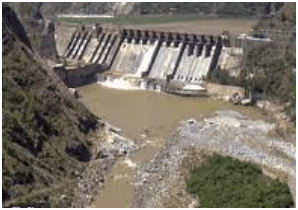PM Modi Asserts Water Rights Over Pakistan
In a move that has reignited tensions between two longstanding regional rivals, Indian Prime Minister Narendra Modi made a forceful statement asserting India’s rights over river waters that flow into Pakistan. Speaking in the wake of a deadly terror attack in Kashmir that claimed the lives of several Indian security personnel, PM Modi declared that India would not allow Pakistan to receive water from rivers over which it has sovereign rights. His announcement comes amidst heightened national security concerns and has been interpreted as a strong message both to Pakistan and to the international community about India’s changing posture on water diplomacy and regional security.
The remarks followed the suspension of a crucial water-sharing treaty, a diplomatic arrangement that has long been seen as one of the few consistent threads in the otherwise tumultuous relationship between the two nuclear-armed neighbors. For decades, the Indus Waters Treaty, brokered with World Bank assistance in the 1960s, has governed the distribution of river waters from six rivers originating in the Indian subcontinent. Under its terms, Pakistan was allocated rights over the western rivers—Indus, Jhelum, and Chenab—while India PM Modi retained control over the eastern rivers—Ravi, Beas, and Sutlej. Despite periods of intense hostility, the treaty has largely held firm, even during times of war.
PM Modi’s statement signals a significant departure from the traditional approach of maintaining water-sharing arrangements as sacrosanct, irrespective of the broader geopolitical tensions. By tying water access to national security and linking it directly to acts of terror emanating from across the border, India appears to be using water as a strategic lever. The Prime Minister did not specify immediate steps to divert or block flows, but his declaration was unequivocal in its tone and intent. It reflects a broader shift in India’s foreign policy under Modi’s leadership—one that increasingly emphasizes assertiveness over accommodation, especially in dealings with Pakistan.
The impact of this declaration is potentially vast, given the agricultural dependency and water scarcity already faced by large swathes of Pakistan. The western rivers, particularly the Indus, serve as lifelines for Pakistan’s irrigation system and drinking water supplies. Any disruption in their flow—whether partial or complete—would exacerbate existing environmental and economic stresses. Experts have warned that weaponizing water could push an already fragile regional equilibrium toward dangerous instability, particularly if retaliatory actions or international interventions are triggered.
From India’s perspective, however, the calculus appears to be driven by both domestic and strategic considerations. The recent terror attack has galvanized public sentiment, with widespread demands for a tough response. Modi’s assertion on water rights may serve not only as a foreign policy maneuver but also as a political signal to his domestic base ahead of key electoral contests. It portrays him as a leader willing to protect national interests through decisive, and if necessary, unconventional means.
The statement of PM Modi also reflects India’s growing emphasis on optimizing the usage of its water resources within its own territory. Officials in New Delhi PM MODI have repeatedly voiced concerns that a significant portion of the eastern rivers’ water remains underutilized. In recent years, India has intensified efforts to develop infrastructure such as dams, canals, and barrages to harness this untapped potential, especially in regions like Punjab, Haryana, and Rajasthan. Modi’s comments could be seen as an acceleration of these plans, now framed within a geopolitical context.
Pakistan’s response to PM Modi’s declaration has been swift and pointed. Officials in Islamabad have condemned the remarks as provocative and irresponsible, warning that any unilateral actions would constitute a violation of international law and could invite severe consequences. They have also called upon international organizations and treaty guarantors to intervene and ensure that the water-sharing framework remains intact. The diplomatic fallout is likely to escalate, with both nations expected to engage in a war of narratives at global forums.
Stay informed with the latest updates – click here .

